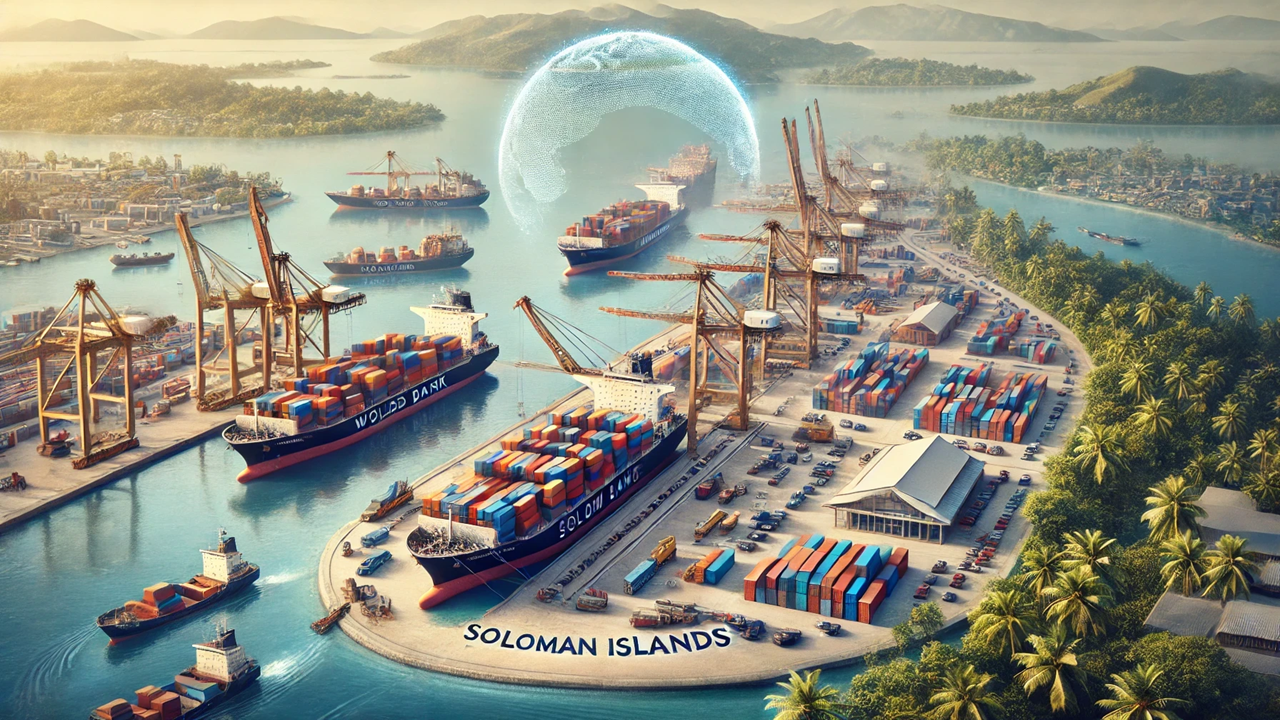Solomon Islands Faces Economic Crossroads: Report Highlights Path to Growth
The Solomon Islands Country Economic Memorandum, published by the World Bank, outlines critical growth strategies for the nation, focusing on improving transport and digital connectivity, enhancing private sector potential, and unlocking the potential of agriculture, tourism, and fisheries. It emphasizes that without reform, the Solomon Islands may struggle to reach economic targets.

The World Bank’s Solomon Islands Country Economic Memorandum offers a comprehensive view of the nation's current economic position, detailing essential reforms needed to drive growth and resilience. By focusing on three core pillars—connectivity, private sector expansion, and strategic sector development—the report highlights the challenges the Solomon Islands faces in overcoming its economic and geographic constraints.
Economic and Geographic Challenges: A Roadblock to Development
As a remote and dispersed archipelago, the Solomon Islands faces unique geographical challenges that significantly impact its economy. The islands are spread over a vast area, making transport between them costly and complex. Additionally, the Solomon Islands has historically relied heavily on logging, an industry now in decline. The report indicates that without significant reform, the country may fall short of achieving upper-middle-income status by 2050.
Economic growth has been slow and often hampered by natural disasters, such as cyclones and earthquakes. Public services struggle to reach all islands, and limited digital and transport connectivity stifles private sector potential. Recognizing these barriers, the World Bank report underscores the need for decisive action to unlock new economic avenues.
Transforming Connectivity to Foster Growth
Improving both transport and digital connectivity is at the heart of the World Bank’s recommendations. The report notes that Solomon Islands’ main port and transportation hub, Honiara, currently serves as the lifeline for inter-island trade. However, poor infrastructure, high costs, and limited rural access present significant challenges. The Memorandum suggests upgrading maritime and road infrastructure, especially around provincial centers, to promote trade and ease mobility within the nation.
Digital connectivity also requires urgent attention. While the recent installation of an undersea fiber optic cable has boosted internet capacity, high costs, and limited reach continue to hinder access. Expanding affordable digital access would help Solomon Islanders connect to broader markets and services, improving business potential and fostering economic inclusion.
Empowering the Private Sector: The Key to Economic Diversity
The Solomon Islands’ private sector remains relatively small and concentrated in urban centers like Honiara. The report identifies land use issues, a skills gap, limited financing options, and high energy costs as barriers to private sector growth. Addressing these challenges is essential to expand the economic footprint beyond traditional industries.
Proposed reforms include land rights improvements, skill development programs, and expanded financing channels for small businesses. By tackling these structural issues, the report suggests that the Solomon Islands can stimulate sectors with high growth potential, including tourism, agriculture, and fisheries.
New Avenues for Growth: Agriculture, Fisheries, and Tourism
The World Bank report identifies agriculture, fisheries, and tourism as three critical sectors for sustainable growth. Despite its rich natural resources, the Solomon Islands has yet to fully capitalize on these areas:
Agriculture: Dominated by smallholder farmers, the sector plays a central role in Solomon Islanders’ lives. The report suggests mechanization, infrastructure improvements, and market access as ways to boost productivity and domestic food security.
Fisheries: The Solomon Islands’ extensive oceanic resources, particularly its tuna stocks, offer significant potential for economic development. Sustainable practices in the fisheries sector could serve both domestic and international markets, generating revenue and supporting local livelihoods.
Tourism: While currently underdeveloped, tourism could transform the economy by leveraging the islands’ pristine beaches, vibrant coral reefs, and historical sites. Building infrastructure, improving governance, and focusing on niche tourism could turn the Solomon Islands into a sought-after travel destination.
Additionally, the report discusses the role of labor mobility programs, which allow Solomon Islanders to work in other countries temporarily. While beneficial in terms of remittances and skills acquisition, these programs need careful management to prevent brain drain and address the social impacts of temporary migration on families.
Building a Resilient Future: Policy Recommendations
The report lays out actionable recommendations across infrastructure, private sector, and sectoral development:
Infrastructure Investment: Improving transport and digital infrastructure is essential for connecting the dispersed population and easing the movement of goods and services. Enhancing maritime, road, and air links would support rural economies, while affordable internet access could boost business and education opportunities.
Private Sector Growth: Reforms in land rights, education, and financial systems are crucial for creating a supportive environment for businesses. Targeted measures to reduce energy costs, streamline regulations, and increase competition would further empower local businesses.
Sector-Specific Growth Strategies: Agriculture, fisheries, and tourism each hold significant potential for economic expansion. Investments in modern farming techniques, sustainable fishing practices, and tourism infrastructure could provide substantial growth dividends, while labor mobility programs can help relieve employment pressures.
The Solomon Islands Country Economic Memorandum, published by the World Bank, underscores the urgent need for a multi-faceted approach to secure the country’s economic future. With a mix of infrastructure improvements, sector-specific interventions, and private sector support, the Solomon Islands could unlock new opportunities for sustainable and inclusive growth. As the report concludes, only through bold, strategic reforms can the Solomon Islands meet its development goals and ensure a brighter economic horizon for all.
- FIRST PUBLISHED IN:
- Devdiscourse
ALSO READ
Goa Gears Up for a Tourism Boom with International Flight Surge
Wuzhou: Gateway to Cultural Renaissance and Tourism Growth
Bridging Cultures: The Official Launch of China-Vietnam Detian-Ban Gioc Tourism Zone
Pompeii's New Strategy: Combating Over-Tourism with Personalized Tickets
Tourism Minister Criticizes Yadav's Tactics Over Taj Mahal Concerns










